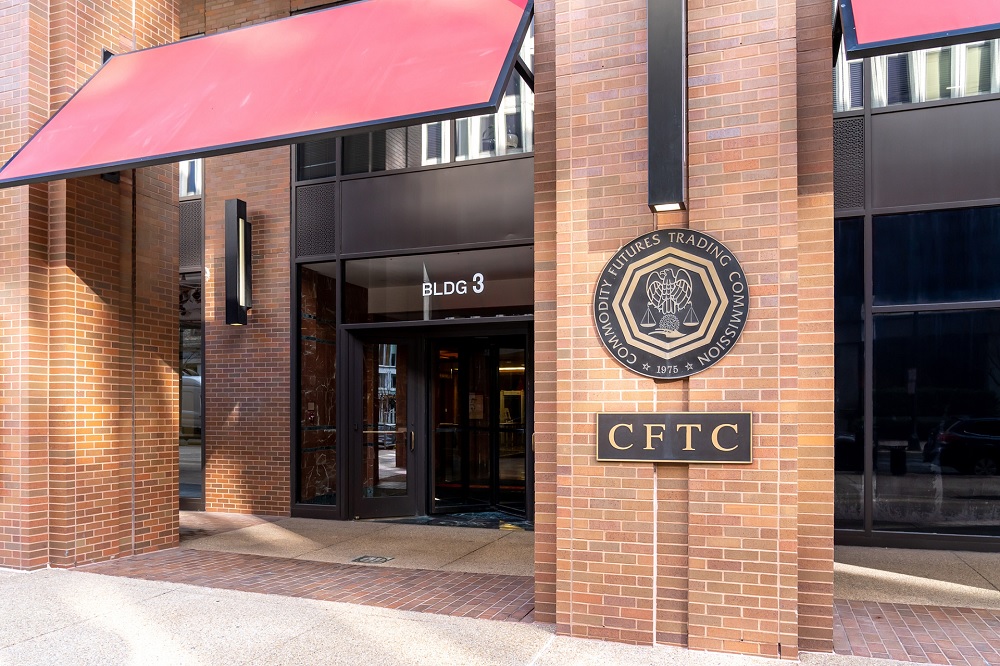CFTC Fines ROFX and Related Entities $169 Million
The U.S. Commodity Futures Trading Commission (CFTC) has obtained an Order of Final Judgment imposing fines of $169,086,837 on ROFX, Notus, and several other defendants.

The U.S. Commodity Futures Trading Commission (CFTC) has obtained a court order imposing heavy penalties on certain commercial entities and individuals involved in the forex fraud scheme ROFX.
On April 22, 2024, Judge Darrin P. Gayles of the Southern District of Florida signed a final judgment against the following nine defendants: (1) Jase Davis ("Davis"), (2) Borys Konovalenko ("Konovalenko"), (3) Anna Shymko ("Shymko"), (4) Alla Skala ("Skala"), and defendants (5) Easy Com LLC d/b/a ROFX ("Easy Com"), (6) Global E-Advantages LLC a/k/a Kickmagic LLC d/b/a ROFX ("GEA"), (7) Grovee LLC d/b/a ROFX ("Grovee"), (8) Notus LLC d/b/a ROFX ("Notus"), and (9) Shopostar LLC d/b/a ROFX ("Shopostar").
The aforementioned defendants are jointly ordered to pay a civil penalty of $169,086,837.63, with post-judgment interest accruing on the CMP obligation if not immediately paid, starting from April 22, 2024. Additionally, the defendants are jointly ordered to pay restitution of $56,362,279.21, which represents the net losses suffered by customers due to the defendants' fraudulent conduct. The court also issued permanent injunctions against the defendants, prohibiting them from registering with the CFTC and participating in CFTC-regulated markets.
According to the amended complaint, during the relevant period, the defendants, as a common enterprise, misappropriated at least $57.5 million through internet entities and/or in collaboration with them, as part of and/or related to a fraudulent scheme to offer leverage, margin, or financing agreements, contracts, or transactions in retail forex to U.S. and international customers who did not qualify as eligible contract participants (ECPs).
The defendants, through a labyrinthine operation involving interconnected companies, shared managers, and members, accepted funds from ROFX customers intended for use as margin, leverage, or financing for forex agreements, contracts, or transactions described on the ROFX website. They accepted funds from customers while acting as a single, integrated common enterprise, and misappropriated all funds received from over 1,100 ROFX customers, immediately transferring the funds to offshore entities unrelated to forex trading.
The defendants were shell companies interrelated with each other and had no legitimate business purpose other than defrauding ROFX customers. They operated jointly under the name of ROFX through the ROFX website, sharing the same management and purported business address, accepting funds from ROFX customers into various bank accounts, and transferring ROFX customer funds to a common offshore entity.
During the relevant period, the defendants controlled one or more defendant companies, acted as executives of defendant companies, and used defendant bank accounts to receive, transfer, and disburse ROFX customer funds. The defendants created one or more defendant companies in the United States and/or utilized shared management, addresses, and registered agents to submit corporate filings on behalf of defendants. The defendants also opened U.S. bank accounts on behalf of one or more defendants, controlled defendant bank accounts, including deposits and withdrawals from these accounts, and transferred ROFX customer funds among themselves and to the same foreign entities.
The defendants acquired customers through the ROFX website, which claimed to use highly successful automated trading robots to create and trade retail forex accounts on behalf of customers. ROFX claimed to be the "best automated forex trading robot in the world" and the only one guaranteeing losses. In addition to the ROFX website, some customers were introduced to ROFX through social media and referrals from acquaintances who had invested in ROFX.
Davis, Konovalenko, Skala, and Stubbs deposited customer funds into defendant company bank accounts but did not use the funds for trading and failed to disclose certain material facts to customers, including but not limited to (1) the defendants misappropriated all ROFX customer funds deposited into defendant company bank accounts; (2) the defendants did not engage in forex trading on behalf of customers after receiving ROFX customer funds; (3) defendant companies were not legitimate commercial enterprises, and the defendants did not transfer ROFX customer funds to any entity conducting trading on behalf of ROFX customers; (4) ROFX customers did not have forex trading accounts; (5) there were no ROFX forex trading robots.
The defendants did not use any customer funds received as promised on the ROFX website for margin, collateral, or securing forex trades, nor did they enter into any forex contracts on behalf of customers. Instead, the defendants misappropriated funds, deposited customer funds into defendant bank accounts, and immediately transferred these funds to various offshore entities and defendant personal accounts.
The defendant company bank accounts appeared to exist solely for the purpose of receiving and transferring ROFX customer funds, as there appeared to be no other legitimate business activities in these accounts. The ultimate recipients of most ROFX customer funds during the relevant period were non-trading entities unrelated to forex trading.
During the relevant period, five defendants—Easy Com, GEA, Grovee, Notus, and Shopostar—acted as futures commission merchants (FCMs) on behalf of ROFX, soliciting or accepting retail forex trading orders through the website and accepting funds for leverage, margin, or securing forex contracts, agreements, or transactions. The defendants acted as FCMs without registering with the CFTC.
Disclaimer: The views in this article are from the original Creator and do not represent the views or position of Hawk Insight. The content of the article is for reference, communication and learning only, and does not constitute investment advice. If it involves copyright issues, please contact us for deletion.